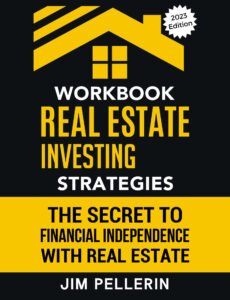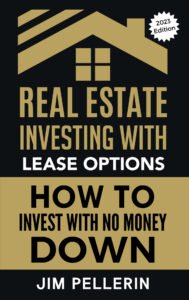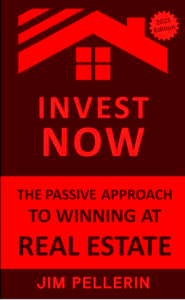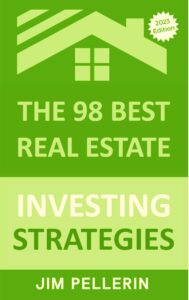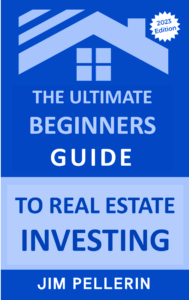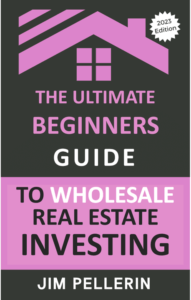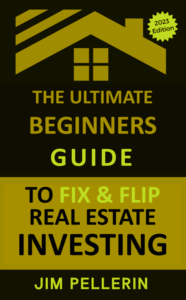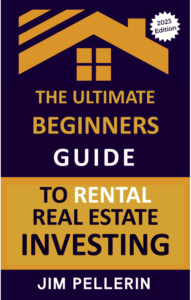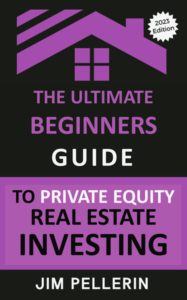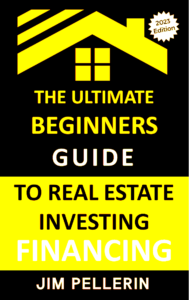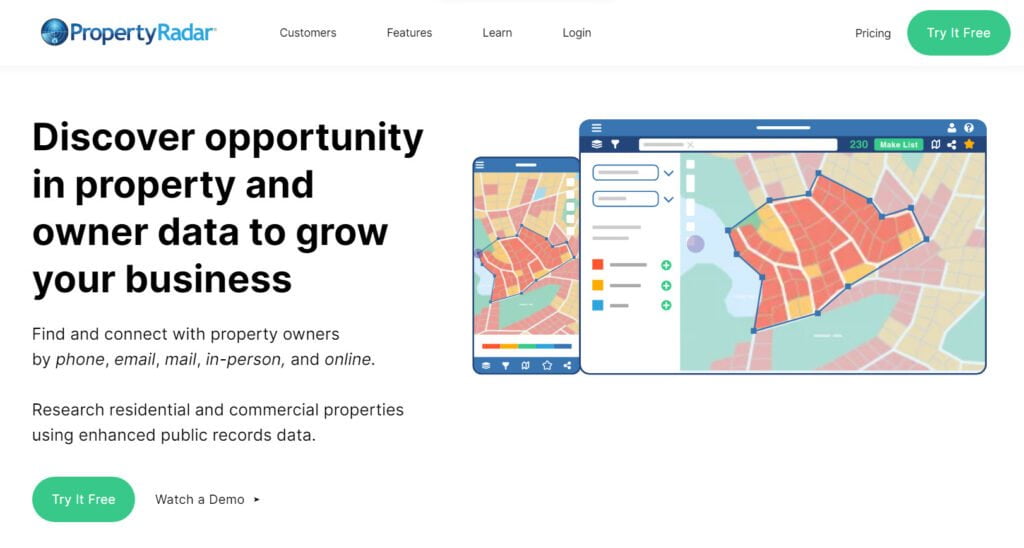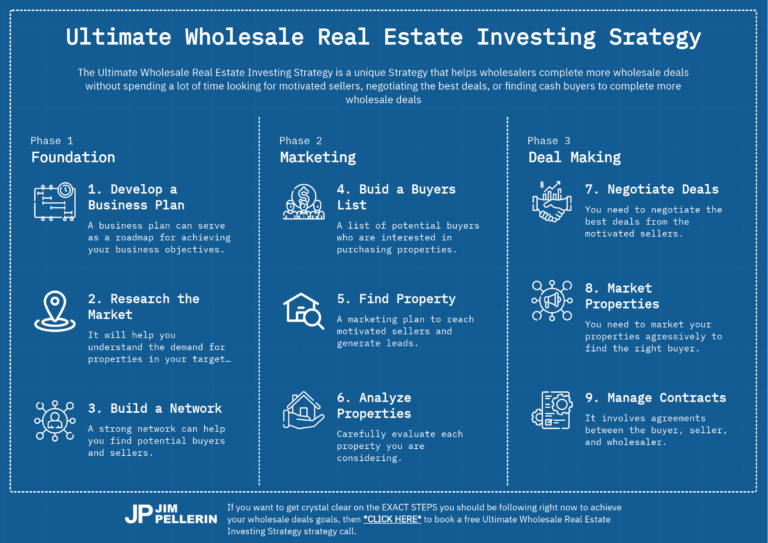The Ultimate Beginners Guide to Wholesale Real Estate Investing
Real estate investing is easy. And wholesale real estate investing is the simplest real estate investing strategy to implement. But it also is the most time-consuming with the least reward. And it’s the quickest way to make money in real estate if you are starting with no money.

There are only a few steps required to get started and be successful in wholesale real estate investing.
The biggest challenge with wholesale real estate investing is finding motivated sellers and properties for you to wholesale.
The key principles required to be successful in wholesale real estate investing are the amount of time you are willing to put into it and the amount of persistence you are willing to endure. You will also be faced with a lot of rejection, criticism, and not-so-pleasant confrontations.
The following chapters should give you enough information to get started and be successful in wholesale real estate investing. However, reading a book is never enough to be successful in any endeavor. Consider this book as an introduction to wholesale real estate investing.
For more information and additional free resources, be sure to check out my website at jimpellerin.com
Chapter 1: Introduction to Wholesale Real Estate Investing
Wholesale real estate investing is an attractive option for investors who want to enter the world of real estate without having to deal with the challenges of owning and managing properties.

In this chapter, we will provide an overview of wholesale real estate investing and why it is a popular strategy among certain investors.
1.1 What is Wholesale Real Estate Investing?
Wholesale real estate investing is a real estate investment strategy that involves finding deeply discounted properties, putting those properties under contract, and assigning the contracts to other investors for a fee. Wholesalers do not own or manage the properties but rather act as intermediaries between sellers and buyers.
1.2 The process of wholesaling is simple
The process of wholesaling typically involves the following simple steps:
1. Finding a Motivated Seller and Property
The first step in wholesaling is finding a motivated seller who is willing to sell their property at a discounted price. This can be achieved through various means such as networking, direct mail campaigns, or even online advertising. Once a potential seller has been identified, the next step is to negotiate and sign a contract with them to purchase the property at a specific price.
2. Find a Buyer
After securing the contract, the wholesaler’s next task is to market the property to potential buyers, typically other real estate investors, for a higher price. This can be done through various channels such as online listings, social media, or even word of mouth. The goal is to find a buyer who is willing to pay the contracted price and a fee, thus creating a profit for the wholesaler.
3. Assign the Contract
Once a buyer has been found, the wholesaler can assign the contract to them for a fee, typically known as an assignment fee. This fee is negotiated between the buyer and the wholesaler and is typically a percentage of the final sale price. The assignment fee is paid to the wholesaler by the buyer at closing.
The buyer also purchases the property from the seller at the contracted price that was negotiated by the wholesaler.
4. Receive Payment
Finally, the deal is closed, and the wholesaler receives the assignment fee from the buyer through the title company.
1.3 Pros and Cons of Wholesaling
There are several benefits to wholesaling, such as:
- low financial risk,
- minimal investment, and
- quick turnaround times
However, there are also potential drawbacks, including the need for extensive market knowledge, the challenge of finding motivated sellers and buyers, and legal and ethical considerations.
1.4 Why Wholesaling is a Great Entry Point for Real Estate Investors
Wholesaling can be an ideal entry point for new investors who want to get started in real estate investing without the significant financial commitment and risks associated with owning and managing properties. Wholesaling allows investors to gain experience in negotiating deals, marketing properties, and building their network of buyers and sellers.
1.5 Setting Realistic Expectations for Wholesaling Success
While wholesaling can be a profitable and rewarding investment strategy, it is important to set realistic expectations for success. Wholesaling requires hard work, dedication, and the ability to adapt to changing market conditions. Wholesalers must also be prepared to navigate legal and ethical considerations when working with buyers and sellers.
1.6 Why wholesalers are important
Some critics suggest that wholesaling is an unethical strategy with the wholesaler ending up ripping off the seller. Nothing could be further from the truth.
Wholesalers play a crucial role in the real estate market as they provide a valuable service to both sellers and buyers. Sellers who are looking to get rid of their property quickly can benefit from the convenience and speed of working with a wholesaler, while buyers can take advantage of the discounted prices and potentially profitable investment opportunities.
Conclusion
In conclusion, wholesale real estate investing is an attractive investment strategy for investors looking to enter the real estate market without the challenges of owning and managing properties. This chapter has provided an introduction to wholesaling, including how it works, the pros and cons, and why it can be a great entry point for new investors. It is important for investors to set realistic expectations for success and be prepared to navigate the challenges of the wholesaling process.
Chapter 2: Creating a Long-Term Wholesaling Business Plan
Creating a long-term business plan is essential for any real estate wholesaler who wants to build a successful and sustainable business.

In this chapter, we will discuss the importance of setting long-term goals, developing a business plan, identifying your target market, refining your wholesaling processes, and continuously revising and updating your business plan.
2.1 Setting Long-Term Goals for Your Wholesaling Business
Setting long-term goals is essential for any business, and wholesale real estate investing is no exception. By setting clear and specific goals, you can create a roadmap for your business and measure your progress over time. Your goals might include the number of properties you want to wholesale in a year, the amount of revenue you want to generate, or the size of your buyer and seller network.
2.2 Developing a Business Plan to Achieve Your Goals
Once you have set your long-term goals, the next step is to develop a business plan that outlines the strategies and tactics you will use to achieve them.
Your business plan should include:
- a detailed overview of your business,
- your target market,
- your marketing strategies,
- your wholesaling processes, and
- your financial projections
You should also identify potential risks and challenges that could impact your business and develop contingency plans to mitigate them.
2.3 Identifying Your Target Market and Marketing Strategies
To be successful in wholesale real estate investing, you need to have a clear understanding of your target market and develop effective marketing strategies to reach them. Your target market might include distressed property owners, absentee owners, and buyers who are looking to buy distressed properties. You should also develop a range of marketing strategies, such as direct mail, online advertising, and networking events, to reach potential buyers and sellers.
2.4 Evaluating Your Wholesaling Processes and Refining Your Approach
Once you have started wholesaling properties, it is important to evaluate your processes and refine your approach to improve your efficiency and profitability. You might consider automating certain tasks, such as lead generation or contract management, to save time and reduce the risk of errors. You should also review your processes regularly to identify areas for improvement and make adjustments to your strategy as needed.
2.5 Continuously Revising and Updating Your Business Plan
As your business evolves and your market changes, it is important to continuously revise and update your business plan to ensure that you stay on track to achieve your long-term goals. You might need to adjust your marketing strategies, refine your target market, or revise your financial projections based on changing market conditions.
Conclusion
In conclusion, creating a long-term business plan is essential for any real estate wholesaler who wants to build a successful and sustainable business. By setting clear goals, developing effective strategies, identifying your target market, refining your wholesaling processes, and continuously revising and updating your business plan, you can maximize your chances of success in the competitive world of wholesale real estate investing.
Chapter 3: Building Your Team
Wholesale real estate investing is a team sport, and building the right team is critical to your success.

In this chapter, we will discuss the key players you need on your team, how to build relationships with real estate agents and brokers, and other wholesalers, how to collaborate with attorneys and accountants, and how to develop and nurture relationships with all key players.
3.1 Identifying Key Players in Your Wholesaling Business
To build a successful wholesaling business, you need to have the right people on your team. This includes a range of professionals such as real estate agents, attorneys, accountants, and other wholesalers. Each of these professionals plays a crucial role in your business, and it is important to identify the key players who can help you achieve your goals.
3.2 Building Relationships with Real Estate Agents and Brokers
Real estate agents and brokers can be valuable partners in your wholesaling business. They can provide you with access to properties that are not listed on the market, help you to identify potential buyers, and assist you in negotiating deals. To build relationships with real estate agents and brokers, it is important to network, attend industry events, and provide value to them in any way you can.
3.3 Other Wholesalers
Acquisition wholesalers and disposition wholesalers can work together in a mutually beneficial way by collaborating on a process called co-wholesaling or joint ventures. Co-wholesaling is a partnership where acquisition wholesalers provide leads for potential real estate deals to disposition wholesalers, who then market and sell those properties to end buyers.
Acquisition wholesalers typically focus on finding distressed properties and negotiating favorable deals with sellers. Once they have secured the property, they may not have the resources, expertise, or desire to market and sell it quickly. This is where disposition wholesalers come in. They have an extensive network of buyers and marketing channels to quickly sell the properties at a profit.
By working together, acquisition wholesalers and disposition wholesalers can leverage each other’s strengths to maximize profits and increase their efficiency.
Acquisition wholesalers can focus on finding great deals while disposition wholesalers can focus on quickly selling those deals for a profit. The co-wholesaling partnership allows each party to specialize in their area of expertise while sharing in the profits of the deal. While each wholesaler will earn less on each deal, the end result is that they will each earn more because they are able to do more deals together.
This approach allows a new wholesaler to focus on one end of the transaction until they can get to a point where they can do a full wholesale transaction if that’s what they want.
3.4 Collaborating with Attorneys and Accountants
As a real estate wholesaler, you will also need to work with attorneys and accountants to ensure that your deals are legally sound and financially viable. Attorneys can help you to review contracts, navigate legal issues, and protect your interests, while accountants can assist you in managing your finances and preparing tax returns. To collaborate with attorneys and accountants, it is important to find professionals who are experienced in real estate law and finance and who have a track record of success working with wholesalers.
3.5 Developing and Nurturing Relationships with Key Players
Building strong relationships with key players in your wholesaling business is essential to your success. This includes not only real estate agents, attorneys, and accountants, but also potential buyers and sellers. To develop and nurture these relationships, it is important to communicate regularly, provide value, and build trust. This can be done through email, social media, phone calls, or in-person meetings.
Conclusion
In conclusion, building the right team is essential to your success as a real estate wholesaler. By identifying key players, building relationships with real estate agents and brokers, and other wholesalers, collaborating with attorneys and accountants, and developing and nurturing relationships with all key players, you can build a strong and sustainable business that will thrive in the competitive world of wholesale real estate investing.
Chapter 4: Understanding the Market and Finding Deals
To be successful in wholesale real estate investing, you need to have a deep understanding of your market and know how to find great deals in it.

In this chapter, we will discuss how to know your local real estate market, identify motivated sellers, find off-market properties, develop a system for lead generation, and understand deal analysis and estimating property value.
4.1 Knowing Your Local Real Estate Market
One of the most important things you can do as a real estate wholesaler is to know your local market. This means understanding the current trends, property values, and demand in your area. You can do this by researching online, attending local real estate events, and speaking with other professionals in the industry.
Knowing your market will help you to identify potential deals and determine the right price to offer for a property.
4.2 Identifying Motivated Sellers
To find great deals, you need to identify motivated sellers who are willing to sell their property below market value. These can include homeowners facing foreclosure, owners of distressed or vacant properties, and individuals going through a divorce or estate sale. You can find motivated sellers by marketing to them directly, using online tools and platforms such as Property Radar, or working with real estate agents who specialize in distressed properties.
4.3 Finding Off-Market Properties
Off-market properties are properties that are NOT listed on the MLS or other public databases. These can be great opportunities for real estate wholesalers as they may be available at below-market prices.
To find off-market properties, you can use a variety of strategies such as:
- direct mail campaigns,
- driving for dollars, and
- networking with other professionals in the industry.
4.4 Developing a System for Lead Generation
To consistently find great deals, you need to develop a system for lead generation. This means setting up a process for identifying, tracking, and following up on potential leads. You can use a variety of tools and software to help automate this process, such as customer relationship management (CRM) software, lead generation software, and email marketing tools such as EngageBay.
4.5 Understanding Deal Analysis and Estimating Property Value
To be successful in wholesale real estate investing, you need to understand deal analysis and how to estimate property value. This means knowing how to evaluate a property’s condition, determine repair costs, and estimate the potential resale value. You can use online tools, such as DealCheck and Flipster, to help estimate property value, or work with experienced real estate professionals to help you evaluate potential deals.
Conclusion
In conclusion, understanding the market and finding great deals is critical to your success as a real estate wholesaler. By knowing your local real estate market, identifying motivated sellers, finding off-market properties, developing a system for lead generation, and understanding deal analysis and estimating property value, you can consistently find great deals and build a thriving wholesaling business.
Chapter 5: Finding Motivated Sellers
Motivated sellers are the lifeblood of a successful wholesale real estate investing business. These are individuals who are motivated to sell their property quickly, often at a discount, due to a variety of reasons such as financial distress, divorce, or a desire to move quickly.

In this chapter, we will discuss the importance of finding motivated sellers, the different types of motivated sellers, how to leverage marketing strategies to attract them, how to build relationships with them, and navigating the legal and ethical considerations when working with them.
5.1 Understanding the Importance of Finding Motivated Sellers
Finding motivated sellers is critical to the success of your wholesaling business. These sellers are often willing to sell their property quickly and at a discount, which can provide you with a greater profit margin on your deals. By having a steady stream of motivated sellers, you can consistently find great deals and build a thriving wholesaling business.
5.2 Identifying Different Types of Motivated Sellers
Motivated sellers can come in many different forms, and it’s important to understand the different types so that you can tailor your marketing strategies to reach them effectively. Some common types of motivated sellers include:
- Homeowners facing foreclosure
- Owners of distressed or vacant properties
- Individuals going through a divorce or estate sale
- Property owners with tax liens or other financial burdens
- Owners of properties with code violations or other legal issues
Understanding these different types of motivated sellers can help you to target your marketing efforts and find great deals.
5.3 Leveraging Marketing Strategies to Attract Motivated Sellers
To find motivated sellers, you need to leverage effective marketing strategies. This can include:
- direct mail campaigns,
- online advertising and websites,
- networking with other professionals in the industry, and
- using social media platforms.
It’s important to develop a targeted marketing plan that reaches the right audience and resonates with their specific needs and motivations.
5.4 Building Relationships with Motivated Sellers
Building relationships with motivated sellers is key to your success as a real estate wholesaler.
This means:
- understanding their needs and motivations,
- listening to their concerns, and
- offering solutions that meet their needs.
By building trust and rapport with motivated sellers, you can become their go-to resource for their real estate needs and earn their business.
5.5 Navigating Legal and Ethical Considerations When Working with Motivated Sellers
When working with motivated sellers, it’s important to navigate the legal and ethical considerations involved.
This includes:
- ensuring that you are complying with all relevant laws and regulations,
- being transparent and honest in your dealings, and
- treating motivated sellers with respect and professionalism.
By adhering to these standards, you can build a reputation as a trustworthy and ethical real estate wholesaler.
Conclusion
In conclusion, finding motivated sellers is critical to your success as a real estate wholesaler. By understanding the importance of finding motivated sellers, identifying the different types, leveraging marketing strategies to attract them, building relationships with them, and navigating the legal and ethical considerations involved, you can consistently find great deals and build a thriving wholesaling business.
Chapter 6: Negotiating with Sellers and Buyers
Negotiating is a crucial skill in wholesale real estate investing. In this chapter, we will discuss the essential techniques required to negotiate with sellers and buyers effectively.

6.1 Basic Negotiation Techniques with Sellers
To negotiate with sellers, you need to have a basic understanding of their wants and needs. Active listening and asking the right questions will help you identify their motivation and pain points. Once you know what they need, you can tailor your offer accordingly. Effective communication, being empathetic, and establishing trust can help you negotiate successfully.
6.2 Building Rapport with Sellers and Finding Win-Win Solutions
Building rapport is essential to establish trust with sellers. Try to connect with them on a personal level, and make them feel comfortable with you. Finding win-win solutions means finding solutions that are beneficial to both parties. Understand the seller’s situation and present your offer in a way that meets their needs and your own.
6.3 Identifying Common Seller Objections and How to Overcome Them
Sellers may have objections, such as not being satisfied with the price, time frame, or other issues. Understanding and addressing these objections effectively can help you close deals. For example, if the seller is not happy with the price, you can justify your offer by providing market data and repair costs.
6.4 Negotiating with Buyers
Negotiating with buyers requires different techniques. You need to be assertive, confident and have a clear understanding of the property’s value. Don’t be afraid to reject lowball offers, and try to negotiate for better terms and conditions.
6.5 Closing Deals with Buyers and Sellers
Once you’ve negotiated with both parties, you need to finalize the deal. Ensure that all parties have agreed on the terms and conditions and that you have a signed contract with both parties. Make sure you follow the legal requirements for wholesaling in your state.
6.6 Understanding the Legal Aspects of Wholesaling
Understanding the legal aspects of wholesaling is crucial to avoid legal issues. You need to be aware of the state and federal laws that govern wholesale real estate investing. Ensure that you comply with all legal requirements, such as having a real estate license or using the right contracts.
Conclusion
Negotiation is a critical component of wholesale real estate investing. Developing your negotiation skills can help you close more deals, and create a reputation as a reliable wholesaler. By understanding the seller’s and buyer’s needs and establishing trust, you can create win-win situations and close deals successfully.
Chapter 7: Evaluating Properties for Wholesaling
Evaluating properties for wholesaling is a crucial step in the process of wholesale real estate investing. It involves analyzing the property to determine its market value, its potential for profit, and whether it meets your investment goals.

This chapter will discuss the different property valuation methods, the financial aspects of wholesaling, and how to conduct due diligence on properties to make informed decisions.
The valuation process is simple and easy to learn. Also, keep in mind, as a wholesaler you will be assigning your contracts to a fix and flipper who will be doing their own valuation so don’t spend a lot of time on this step.
7.1 Understanding Property Valuation Methods
As an individual who operates as a wholesaler, it is imperative that you possess the ability to accurately and effectively calculate the after-repair value (ARV) of a property. This is a crucial aspect of the wholesaling process, as it allows you to determine the potential profitability of a property and make informed decisions regarding its purchase and resale.
In order to calculate the after-repair value, it is necessary to look at the local real estate market and calculate the average cost per square foot of comparable properties that have recently sold in the area. Then multiply the average cost per square foot by the number of square feet in the subject property. The result is the estimated after-repair value of the property you are evaluating. Check out this free calculator that will assist you in this calculation.
7.2 What is the Maximum Allowable Offer?
When it comes to wholesaling investment, one of the most important factors to consider is the maximum allowable offer (MAO). This is the maximum amount that an investor can offer to purchase a property while still ensuring that they make a profit. Calculating the MAO requires a thorough understanding of the market, the property’s condition, and the potential for future profit.
To calculate the MAO, an investor must first determine the after-repair value (ARV) of the property (see previous section). This is the estimated value of the property after it has been repaired and renovated. The ARV can be determined by looking at comparable properties in the area that have recently sold or by consulting with a real estate agent.
Once the ARV has been determined, the wholesaler must then subtract the estimated repair costs, carrying costs, assignment fee, and profit from the ARV. This will give them the maximum amount that they can offer for the property which will ensure that there is a profit for the investor. The estimated repair costs should be based on an inspection of the property and should take into account any necessary repairs or renovations.
MAO = ARV – Repair Costs – Carrying Costs – Assignment Fee – Profit
Overall, calculating the MAO requires a careful analysis of the property and the market. Check out this free tool you can use to assist in the MAO calculation.
It is important for wholesalers to take their time and consider all of the relevant factors before making an offer. By doing so, they can ensure that they make a sound offer and maximize the potential profit.
7.3 Other Key Factors that Impact Property Value
When it comes to determining the value of a property, there are several other factors that come into play besides price. Among these factors, the location, condition, and size of the property are some of the most significant.
In order to make informed decisions about which properties have the potential to generate a high profit margin, it is essential to evaluate these factors carefully and thoroughly. By doing so, wholesalers can identify properties that are likely to sell the fastest, as well as those that may require significant repairs or renovations in order to maximize their profitability.
Location
One of the key considerations when evaluating a property is its location. Properties that are situated in desirable neighborhoods or areas with high demand are generally more valuable than those in less desirable locations. This is because location can impact a wide range of factors, including access to amenities, transportation options, and the overall quality of life in the area. As such, wholesalers should carefully consider the location of a property before making any decisions.
Property Condition
Another important factor to consider when evaluating a property is its condition. Properties that are in good condition and require minimal repairs or renovations are generally more valuable than those that are in poor condition. This is because properties that are in good condition are more likely to attract buyers, and are less likely to require costly repairs or maintenance. As such, wholesalers should carefully inspect a property’s condition before making any offer.
Property Size
Finally, the size of a property is also an important consideration when evaluating its value. Properties that are larger in size are generally more valuable than those that are smaller, as they offer more space and potential for higher resale value. However, wholesalers should also consider the cost of repairing a larger property, as well as the potential for longer sales times as there is less of a demand for larger homes.
Other Considerations
In addition to these factors, it is also important to be aware of any hidden problems that may impact a property’s value and profitability. These can include issues such as structural damage, pest infestations, or zoning restrictions that may impact the property’s profit potential.
By carefully evaluating these factors and conducting thorough due diligence, wholesalers can identify properties that have the potential to generate a high profit margin and avoid those that may pose a risk to any investor.
7.4 Conducting Due Diligence on Properties
It is essential to conduct due diligence to ensure that the property is worth the investment. Due diligence refers to the process of investigating and verifying the property’s legal, financial, and physical aspects to identify any potential risks or issues that may affect the purchase decision. The activities required to do due diligence before buying a house involve a comprehensive and meticulous examination of these factors.
Legal
Firstly, it is crucial to review the property’s legal documents, including the title deed, survey report, and zoning regulations. This step helps to confirm the property’s ownership, boundaries, and any restrictions or limitations on its use.
Financial
Secondly, it is necessary to assess the property’s financial aspects, such as its market value, taxes, and any outstanding debts or liens. This step helps to determine the property’s affordability and potential return on investment.
Physical
Thirdly, it is essential to inspect the property’s physical condition, including its structural integrity, electrical and plumbing systems, and any potential hazards or defects. This step helps to identify any necessary repairs or renovations and estimate their costs.
Neighborhood
Additionally, it is advisable to conduct a neighborhood analysis to evaluate the area’s safety, accessibility, and amenities. This step helps to determine the property’s suitability for the end-buyer’s lifestyle and preferences.
Overall, conducting due diligence before buying a house is a critical process that requires careful attention to detail and thorough investigation. By completing these activities, wholesalers and buyers can make informed decisions and avoid potential risks or issues that may arise after the purchase.
7.5 Knowing When to Walk Away from a Deal
Not all deals are good deals, and wholesalers need to know when to walk away from a deal.
As a wholesaler, it is imperative to have a keen eye for identifying profitable deals. However, not all deals that come your way are worth pursuing, and it is crucial to know when to walk away from a deal.
In this section, we will discuss the red flags that indicate a deal may not be worth pursuing, including properties that have too many problems, properties that are overpriced, and properties that are in undesirable locations.
We will also explain how to calculate the potential profit margin to determine whether a deal is worth pursuing.
Too Many Problems
One of the most significant red flags is a property that has too many problems. These problems could range from structural issues to legal complications, and they can significantly impact the profitability of the deal. It is essential to conduct a thorough inspection of the property and assess the extent of the problems before making a decision.
Overpriced
Another red flag to watch out for is properties that are overpriced. While it is natural for sellers to want to get the best price for their property, it is crucial to ensure that the price is reasonable and within market value. Overpriced properties can be challenging to assign and sell, and you may end up stuck with the property in the long run.
Undesirable Locations
Properties that are in undesirable locations are also a red flag. These locations could be in high-crime areas, flood-prone areas, or areas with poor infrastructure. Such properties may be challenging to sell, and the buyer may end up holding onto them for an extended period, which can be costly and effects the overall profit.
Potential Profit
To determine whether a deal is worth pursuing, it is essential to calculate the potential profit margin. This involves assessing the purchase price, repair costs, and the expected selling price. If the potential profit margin is low, it may not be worth pursuing the deal.
In conclusion, as a wholesaler, it is crucial to be vigilant and identify the red flags that indicate a deal may not be worth pursuing. By doing so, you can save yourself time, effort, and money and focus on deals that have the potential to yield significant profits.
Conclusion
Evaluating properties for wholesaling is a critical step in the wholesaling process. This chapter has discussed the different property valuation methods, the financial aspects of wholesaling, how to conduct due diligence on properties, and how to make informed decisions about which properties to invest in.
Chapter 8: Marketing Your Wholesale Properties
Marketing your wholesale properties is an essential part of your wholesaling business. Without proactive and effective marketing, you may struggle to find buyers for your properties.

In this chapter, you will learn about the different strategies and techniques for marketing your wholesale properties.
8.1 Developing a Marketing Strategy for Your Properties
The first step in marketing your wholesale properties is to develop a marketing strategy. This involves identifying your target market, determining the best channels to reach them, and creating a plan to promote your properties. Your marketing strategy should include a mix of online and offline marketing techniques, such as property listings, social media promotion, email marketing, direct mail, and more.
8.2 Creating Effective Property Listings and Descriptions
Your property listings and descriptions are critical to attracting potential buyers. Your listings should be descriptive and showcase the unique features of each property. Additionally, you should include high-quality photos and videos to give buyers a better idea of what the property looks like. Also, you should have the financials already figured out and include them in your presentations. This includes ARV, asking price, estimated renovation costs, potential profit for the buyer, and your assignment fee.
8.3 Developing Relationships with Potential Buyers
The best marketing plan is to not need one. Building relationships with potential buyers in advance is an essential part of marketing your wholesale properties. You can attend local real estate events and networking groups to meet potential buyers or reach out to buyers directly through email or phone. Be sure to keep your buyer database up to date and follow up with leads regularly. Facebook groups are a goldmine of potential buyers.
8.4 Using Social Media to Promote Your Properties
Social media is a powerful tool for marketing your wholesale properties. You can use platforms like Facebook, Twitter, and Instagram to showcase your properties and connect with potential buyers. Consider running targeted ads to reach a wider audience and using social media groups to network with other real estate professionals.
8.5 Leveraging Technology to Streamline Your Marketing Efforts
Technology can help you streamline your marketing efforts and save time. For example, you can use marketing automation tools to schedule social media posts, send out email newsletters, and perform other marketing activities. Use a tool like DealCheck to create professional-looking presentations. Additionally, you can use virtual tours and video walkthroughs to showcase your properties to potential buyers.
Conclusion
Marketing your wholesale properties effectively is essential for the success of your wholesaling business. By developing a comprehensive marketing strategy and leveraging the latest marketing techniques and tools, you can reach a wider audience and find buyers for your properties quickly and easily.
Chapter 9: Building Your Wholesaling Real Estate Brand
Building your wholesaling real estate brand is a crucial step in establishing your business and attracting potential buyers and sellers. In this chapter, we will explore the key steps to creating and developing a strong brand identity that stands out in a crowded market.

9.1 Establishing Your Brand Identity
The first step to building a successful brand is to establish your brand identity. This includes defining your company’s values, mission statement, and overall image. Your brand identity should reflect your personality, values, and what sets you apart from other wholesalers. A strong brand identity can help create trust and credibility with your clients, which can lead to increased sales and referrals.
9.2 Developing Your Brand Messaging
Your brand messaging is the way you communicate your brand identity to the world. It should be clear, concise, and consistent across all your marketing materials. Your messaging should convey your unique selling proposition (USP) and the benefits of working with your company. Your messaging should also address the pain points of your target audiences and how your services can solve their problems.
9.3 Creating a Website and Other Marketing Collateral
Creating a professional website and marketing materials is essential to building your brand. Your website should reflect your brand identity and include your USP and messaging. It should be easy to navigate, visually appealing, and optimized for search engines. The best website builder for wholesaling and motivated sellers that I have found is Carrot.
Other marketing materials, such as business cards, brochures, and flyers, should also reflect your brand identity and messaging.
9.4 Building a Social Media Presence
Social media is a powerful tool for building your brand and engaging with potential clients. You should identify which platforms your target audience is most active on and create a social media strategy that aligns with your brand identity and messaging. For buyers, I would focus on Linkedin, Facebook and Facebook Groups that focus on real estate investing or wholesaling in your area. Consistency is key, and you should post regularly and engage with your followers to build a strong online presence.
9.5 Differentiating Yourself from Competitors
Differentiating yourself from your competitors is essential to building a strong brand. You should identify what makes you unique and emphasize those qualities in your messaging and marketing materials. Maybe you specialize in a certain geographical area or in foreclosures. This could be your USP, your approach to customer service, or your experience in the industry.
9.6 Leveraging Testimonials and Referrals to Build Your Reputation
Testimonials and referrals are powerful tools for building your reputation and establishing credibility with potential clients. You should encourage satisfied clients to leave reviews and testimonials on your website and social media platforms. You should also ask for referrals from your satisfied clients and offer incentives for them to refer their friends and family.
Conclusion
Building a strong brand identity is essential to the success of your wholesaling business. By establishing your brand identity, developing your brand messaging, and identifying your USP, you can create a powerful brand that stands out in a crowded market. By creating a professional website and marketing materials, building a social media presence, differentiating yourself from your competitors, and leveraging testimonials and referrals, you can build a strong reputation and attract potential clients.
Chapter 10: Developing a Mindset for Success
Developing a mindset for success is one of the most critical aspects of becoming a successful real estate wholesaler. The right mindset can help you overcome obstacles, take calculated risks, and stay motivated during challenging times.

In this chapter, we will explore the key elements of developing a successful mindset.
10.1 Adopting a Growth Mindset
Adopting a growth mindset means embracing the idea that you can always improve and grow, no matter your current level of expertise. Successful real estate wholesalers understand that there is always something to learn, and they approach every situation as an opportunity to gain knowledge and experience. A growth mindset also means that you are willing to take risks, even if it means making mistakes along the way.
10.2 Overcoming Fear and Doubt
Fear and doubt are common barriers to success in any industry, and wholesale real estate investing is no exception. To be successful, you must learn how to overcome these emotions and move forward despite them. One effective way to overcome fear and doubt is to focus on your goals and why you want to achieve them. Keep in mind that every successful wholesaler has faced fear and doubt at some point and has learned how to overcome them. You will experience lots of rejection from not-so-motivated sellers but you must persevere and keep talking to sellers in hopes of finding motivated sellers that are looking for your assistance.
10.3 Staying Motivated During Challenging Times
Wholesale real estate investing can be a challenging and unpredictable business, and it’s essential to stay motivated during difficult times. One way to do this is to focus on your “why.” Why did you get into wholesale real estate investing in the first place? What motivates you to keep going, even when things get tough? By staying connected to your motivation, you can push through difficult times and stay focused on your goals.
10.4 Celebrating Small Wins
Celebrating small wins is an important part of developing a successful mindset. Every successful real estate wholesaler knows that achieving significant goals takes time and effort, and it’s important to acknowledge and celebrate progress along the way. Celebrating small wins can help you stay motivated and build momentum toward your larger goals. Some examples are contacting your 100th seller or getting your 100th no.
10.5 Setting and Achieving Realistic Goals:
Setting and achieving realistic goals is critical for success in wholesale real estate investing. Your goals should be specific, measurable, and achievable within a set timeframe. It’s essential to break larger goals down into smaller, more manageable steps, and to regularly assess your progress towards those goals. By setting and achieving realistic goals, you can build confidence, stay motivated, and ultimately achieve the success you desire.
Conclusion
Developing a successful mindset is a critical component of becoming a successful real estate wholesaler. By adopting a growth mindset, overcoming fear and doubt, staying motivated during challenging times, celebrating small wins, and setting and achieving realistic goals, you can develop the mindset necessary for success. Remember that success in wholesale real estate investing takes time, effort, and dedication, but with the right mindset, anything is possible.
Chapter 11: Managing Your Wholesaling Deals
Managing your wholesaling deals is an essential part of a successful wholesale real estate investing business. It is essential to have a well-organized and efficient system for managing your deals to ensure that you can handle all the necessary tasks and keep everything running smoothly.

11.1 Developing a System for Managing Your Deals
Developing a system for managing your deals is the first step in successfully managing your wholesaling deals. Your system should include all the necessary steps and tasks required for the wholesaling process, from identifying potential properties to closing the deal.
To develop an effective system, start by breaking down the wholesaling process into its different stages and creating a checklist for each stage. Each stage should include all the necessary tasks, timelines, and deadlines required to complete the stage successfully.
Your system should also include a way to track your progress and monitor your deals’ status.
11.2 Staying Organized and Efficient with Deal Management
To manage your wholesaling deals efficiently, it is essential to stay organized and focused. This can be achieved by developing a routine and sticking to it. Create a daily schedule that includes time for lead generation, follow-up calls, property inspections, and deal management tasks.
Make sure to prioritize your tasks based on their importance and urgency. Focus on completing the most critical tasks first and delegate less important tasks to other team members or contractors.
To stay organized, consider using a project management tool, such as Team Gantt or ClickUp to manage your tasks and track progress. These tools can help you stay on top of all your deals and ensure that nothing falls through the cracks.
11.3 Communicating Effectively with Buyers and Sellers
Effective communication is essential for successful deal management. It is crucial to keep buyers and sellers informed throughout the entire process and to be transparent and honest about any issues or challenges that arise.
Make sure to establish clear communication channels and keep all parties involved in the deal updated on its progress. Use email, phone calls, and text messages to keep in touch with buyers and sellers and to answer any questions they may have.
When communicating with buyers and sellers, be professional and respectful at all times. Remember that you are representing your business, and your communication skills will directly impact your reputation.
11.4 Handling Challenges and Obstacles During Deals
Wholesale real estate investing deals can be complicated and challenging, and it is essential to be prepared to handle any challenges or obstacles that may arise. To manage these challenges effectively, stay calm and level-headed, and don’t let your emotions get the best of you.
Be proactive in addressing issues and challenges and develop a plan to overcome them. Reach out to your network of contacts, such as attorneys, real estate agents, and contractors, for help and advice if necessary.
When facing challenges, stay focused on finding solutions rather than dwelling on the problem. Use your problem-solving skills to find creative solutions and keep your deals on track.
11.5 Celebrating Successes and Learning from Mistakes in Your Wholesaling Deals
Finally, it is essential to celebrate your successes and learn from your mistakes in your wholesaling deals. Take the time to acknowledge your achievements and recognize the hard work that went into closing a successful deal.
At the same time, use your mistakes and failures as opportunities to learn and grow. Analyze what went wrong and identify areas where you can improve your process or strategy in the future.
Conclusion
Managing your wholesaling deals effectively requires a combination of organization, communication, and problem-solving skills. By developing a system for managing your deals, staying organized and efficient, communicating effectively with buyers and sellers, and handling challenges and obstacles.
Chapter 12: Scaling Your Business
Scaling your wholesaling business involves growing it by increasing its size, revenue, and profitability. It can also mean expanding into new markets and diversifying your business offerings. However, scaling a business requires planning, resources, and a strategic approach. Scaling will cost you money for resources and people.

In this chapter, we will explore the steps you can take to scale your wholesaling business successfully.
12.1 Knowing When to Scale Your Business
Scaling your wholesaling business should not be taken lightly as it requires resources, capital, and time. It’s crucial to determine whether you are ready to scale your business before you take the plunge. Some signs that indicate you’re ready to scale include:
- Consistent profits: Your business should be generating consistent profits that can support growth.
- High demand: If there is a high demand for your services, scaling your business can help you meet this demand.
- Capacity: Your business should have the capacity to handle growth without compromising on quality or customer service. Outsource or hire help.
- Repeatable processes: Scaling your business requires repeatable processes that can be scaled without reducing quality or efficiency when assigned to someone else.
- Market opportunity: If you have identified an untapped market, scaling your business can help you reach that market and capitalize on the opportunity.
12.2 Developing a Plan for Growth
Once you’ve decided to scale your business, it’s essential to develop a growth plan that outlines your goals, strategies, and tactics. Your growth plan should include the following elements:
- Identify your target market: Determine your target market and research their needs and preferences. Foreclosures, disgruntled landlords, etc.
- Develop a marketing plan: Create a marketing plan that outlines how you will reach your target market and promote your services.
- Determine your fee structure: Determine your fee structure based on your market research and competition.
- Build a team: Build a team of professionals who can support your business’s growth, including salespeople, marketers, and operations staff.
- Plan your finances: Plan your finances carefully, including your budget, revenue projections, and cash flow.
- Develop operational systems: Develop operational systems that can support growth, including lead generation, acquisitions, and dispositions.
12.3 Identifying Potential Risks and Challenges
Scaling your business comes with inherent risks and challenges. Some of the potential risks and challenges you may face include:
- Cash flow problems: Scaling your business requires capital, and you may experience cash flow problems during the growth phase.
- Supply chain issues: As your business grows, you may face supply chain issues, including finding enough motivated sellers and properties.
- Staffing problems: Scaling your business requires a team of professionals, and you may face staffing problems, including finding the right talent and retaining them.
- Operational inefficiencies: As your business grows, you may experience operational inefficiencies, including a lack of standardization, communication problems, and process bottlenecks.
- Increased competition: As your business expands, you may face increased competition from new entrants in the market.
Identifying these risks and challenges in advance can help you develop strategies to mitigate them.
12.4 Building a Team to Support Your Growth
Scaling your business requires a team of professionals who can support your growth. You may need to hire new employees, outsource work, or partner with other wholesalers. Some of the key professionals you may need include:
- Marketers: Marketers can help you develop and implement marketing strategies that can help you reach your target market.
- Salespeople: Salespeople can help you reach new markets and increase your revenue.
- Operations staff: Operations staff can help you manage your properties, contracts, and back-end systems.
- Advisors: Advisors can provide guidance and support as you scale your business, including legal, financial, and strategic advice.
Building a strong team can help you navigate the challenges of growth.
12.5 Leveraging Technology and Automation to Scale
Technology and automation can play a crucial role in scaling your business. By automating repetitive tasks and leveraging technology, you can increase efficiency, reduce costs, and improve customer service. Some of the ways you can leverage technology and automation include:
Using customer relationship management (CRM) software: CRM software can help you manage customer interactions and improve customer service.
Implementing lead generation software: Lead generation software can help you locate motivated sellers and manage your outreach to these potential customers.
Conclusion
In conclusion, scaling your business requires careful planning, resources, and a strategic approach. By knowing when to scale, developing a growth plan, identifying potential risks and challenges, building a strong team, and leveraging technology and automation, you can successfully scale your wholesaling business and achieve your growth goals.
Chapter 13: Networking and Building Relationships
Wholesale real estate investing is a people business, and building a strong network of contacts is essential to success. Networking and building relationships can help wholesalers to find motivated sellers, connect with potential buyers, and build partnerships with other professionals in the industry.

In this chapter, we will explore some strategies for building a strong network of contacts and staying connected with them.
13.1 Building a Strong Network of Contacts
Building a strong network of contacts is crucial for success in wholesale real estate investing. The more people you know, the more opportunities you will have to find deals, connect with buyers and sellers, and build partnerships with other professionals in the industry.
One way to build a strong network of contacts is to attend local real estate events and meetings. This includes real estate investor associations, industry conferences, and other networking events.
Attending these events allows you to meet other wholesalers, investors, and professionals in the industry. It’s a great way to make connections and learn about the latest trends and strategies in real estate.
Another way to build your network is to join real estate investment groups. These groups typically consist of like-minded individuals who are interested in investing in real estate. Joining an investment group can help you to find potential buyers and partners for your deals. It’s also a great way to learn from other investors and wholesalers in the industry.
13.2 Attending Real Estate Industry Events
Attending real estate industry events is an excellent way to build your network of contacts. Industry events provide an opportunity to meet other wholesalers, investors, and professionals in the industry. These events often feature keynote speakers, educational sessions, and networking opportunities.
Attending these events can also help you to stay current on industry trends and meet other professionals who can help you to grow your business. It’s also a great way to build relationships with potential buyers and other wholesalers.
13.3 Joining Real Estate Investment Groups
Joining a real estate investment group is another way to build your network of contacts. These groups typically consist of investors and wholesalers who are interested in investing in real estate. Joining a group can help you to find potential buyers and partners for your deals.
It’s also an excellent way to learn from other investors and wholesalers in the industry. Many investment groups offer educational sessions, mentorship programs, and networking events. By joining a group, you can learn from experienced professionals and get support as you grow your business.
13.4 Utilizing Online Networking Platforms:
In addition to attending real estate events and joining investment groups, you can also build your network by utilizing online networking platforms. Social media platforms like LinkedIn, Facebook, and Twitter can be a great way to connect with other professionals in the industry.
By joining online real estate groups and forums, you can connect with other wholesalers and investors who share your interests. You can also use these platforms to promote your business and build relationships with potential buyers.
13.5 Developing a System for Following Up and Staying Connected
Building a strong network is not just about making connections. It’s also about maintaining those connections and staying top of mind with your contacts. To do this, you need to develop a system for following up and staying connected.
One way to stay connected with your contacts is to send regular emails or newsletters. This can help you keep your contacts informed about your business and any new deals you have available. You can also use this opportunity to ask for referrals or recommendations.
Another way to stay connected is to schedule regular phone or in-person meetings with your contacts. This allows you to catch up and discuss any potential deals or partnerships.
Conclusion
Building a strong network of contacts is essential for success in wholesale real estate investing. By attending events, joining investment groups, utilizing online networking platforms, and developing a system for following up, you can build good relationships.
Chapter 14: Expanding Your Wholesaling Reach
Expanding your wholesaling reach can be achieved through virtual wholesaling or by targeting markets outside of your local area.

The chapter provides an overview of the benefits of expanding your reach, the challenges you may face, and strategies for building relationships with out-of-state investors.
14.1 Understanding the Benefits of Virtual Wholesaling
Virtual wholesaling involves conducting wholesale deals remotely, without ever visiting the property or meeting the seller in person. This approach can allow you to expand your reach and do business in different markets without physically being there. It can also save you time and money by eliminating the need to travel, reducing expenses related to marketing materials, and making it easier to scale your business. However, virtual wholesaling requires you to have strong communication skills and technical proficiency to conduct deals remotely.
14.2 Identifying Markets Outside of Your Local Area
Identifying new markets to target is essential for expanding your wholesaling reach. You can research markets outside of your local area by looking for cities or regions with favorable real estate market conditions, such as low inventory, high demand, and a growing population. Additionally, you may consider looking for markets with emerging industries or job opportunities, as this can increase demand for housing and drive up property values.
14.3 Developing a Strategy for Expanding Your Reach
To successfully expand your reach, you need to have a clear strategy in place. This includes identifying your target markets, researching real estate market conditions, developing a marketing plan to reach out to potential sellers and buyers, and creating a system for managing deals remotely. It’s important to consider the potential challenges of working in a new market, such as unfamiliar regulations, different buying preferences, and increased competition.
14.4 Building Relationships with Out-of-State Investors
To effectively expand your reach, you need to build relationships with investors and wholesalers in your new target markets. You can do this by attending real estate investment events and joining industry groups, such as real estate associations or investor networks. Additionally, you can utilize online networking platforms, such as LinkedIn and BiggerPockets, to connect with potential partners and investors. Building strong relationships can help you gain access to off-market deals, learn about market trends and conditions, and expand your referral network.
14.5 Navigating Legal and Tax Implications of Out-of-State Wholesaling
Expanding your reach to new markets requires you to understand the legal and tax implications of wholesaling properties outside of your state. You need to comply with state and federal regulations, such as licensing requirements, contract laws, and disclosure requirements. Additionally, you need to be aware of any differences in state tax laws and consult with a tax professional to ensure compliance.
Conclusion
Expanding your wholesaling reach can be an effective way to grow your business, gain access to new markets, and build relationships with investors and wholesalers. To successfully expand your reach, you need to have a clear strategy in place, develop strong relationships with industry professionals, and stay up-to-date on legal and tax requirements. With the right approach, virtual wholesaling and targeting new markets can help you take your wholesaling business to the next level.
Chapter 15: Leveraging Technology to Streamline Your Business
Technology has revolutionized the real estate industry, and wholesalers can take advantage of it to streamline their business operations.

In this chapter, we will explore the different ways wholesalers can leverage technology to improve their workflow and stay ahead of the competition.
15.1 Identifying Technology Tools to Improve Your Workflow
The first step to leveraging technology for your wholesaling business is to identify the tools that can help you streamline your workflow. Some of the technology tools that wholesalers can use include:
- Lead Gen Software: Real estate lead generation software has become an essential tool for real estate professionals looking to find and acquire leads quickly and efficiently. Two examples of such software are Propstream and PropertyRadar. Propstream is a comprehensive real estate platform that provides access to nationwide property data, including ownership information, property characteristics, and transaction history. It also features a robust lead generation tool that allows users to create targeted lists of motivated sellers based on specific criteria such as location, property type, and more. PropertyRadar, on the other hand, is a marketing automation platform designed to help real estate professionals find new leads, market to them effectively, and close more deals. It provides detailed property data, and owner information, and even tracks leads’ behavioral patterns to help wholesalers tailor their marketing campaigns.
- CRM systems: A Customer Relationship Management (CRM) system is a software solution that allows you to manage all your customer data and interactions in one place. This tool can help wholesalers track leads, manage contacts, and automate follow-up tasks. Some popular CRM systems you can use for real estate include EngageBay, Simpli, and REI Blackbook.
- Project management software: This tool can help wholesalers manage their projects and tasks more efficiently. Project management software allows wholesalers to assign tasks, track progress, and collaborate with team members. Some popular project management software options include Team Gantt and ClickUp.
- Real Estate Analysis Software: Real estate analysis software has become an essential tool for real estate wholesalers looking to analyze potential deals quickly and accurately. Two examples of such software are DealCheck and Flipster.
DealCheck is a powerful real estate analysis tool that allows investors to evaluate the financial viability of a potential deal by inputting relevant data such as property value, rental income, and expenses. It can also factor in various metrics like cash-on-cash return, cap rate, and internal rate of return, making it easier for investors to make informed decisions about their investments.
Flipster, on the other hand, is a software platform designed specifically for real estate flippers. It includes tools for analyzing potential deals, estimating rehab costs, and tracking expenses throughout the renovation process. It also provides customizable project timelines and budgets, making it easier for investors to stay on track and on budget.
15.2 Using Customer Relationship Management (CRM) Systems
A CRM system can be a game-changer for wholesalers looking to streamline their business operations. With a CRM system, wholesalers can manage all their customer data in one place, making it easier to track leads, manage contacts, and automate follow-up tasks.
Some of the benefits of using a CRM system for wholesaling include:
- Improved lead tracking: A CRM system can help wholesalers track leads from multiple sources, such as online ads, referrals, and direct mail campaigns. This tool can help wholesalers identify which lead sources are most effective, allowing them to focus their marketing efforts where it matters most.
- Enhanced communication: A CRM system can help wholesalers keep track of all their communication with buyers and sellers. This tool can help wholesalers stay organized and ensure that no leads fall through the cracks.
- Automated follow-up: A CRM system can automate follow-up tasks such as sending emails and reminders, allowing wholesalers to focus on other aspects of their business. Automated follow-up can help wholesalers save time and increase their chances of closing deals.
15.3 Implementing Marketing Automation
Marketing automation is another technology tool that wholesalers can use to streamline their business operations. Marketing automation software can help wholesalers automate repetitive marketing tasks, such as sending email campaigns and social media posts. Some of the benefits of using marketing automation for wholesaling include:
- Improved lead generation: Marketing automation can help wholesalers generate leads by targeting potential buyers and sellers with personalized marketing messages. This tool can help wholesalers increase their visibility and attract new leads.
- Increased efficiency: Marketing automation can help wholesalers save time by automating repetitive marketing tasks. This tool can free up time for wholesalers to focus on other aspects of their business, such as deal-making and relationship-building.
- Enhanced personalization: Marketing automation can help wholesalers personalize their marketing messages based on customer data. This tool can help wholesalers create more effective marketing campaigns that resonate with their target audience.
15.4 Leveraging Data Analytics for Decision-Making
Data analytics is the process of using data to inform decision-making and improve performance. In the context of wholesaling, data analytics can be used to analyze market trends, track sales performance, and identify areas for improvement. By leveraging data analytics, wholesalers can make informed decisions that will help them improve their business and stay ahead of the competition.
There are several types of data analytics that wholesalers can use, including descriptive, predictive, and prescriptive analytics.
- Descriptive analytics involves analyzing historical data to understand what has happened in the past.
- Predictive analytics uses statistical algorithms and machine learning to make predictions about future events based on past data.
- Prescriptive analytics takes things a step further by recommending specific actions to improve outcomes.
To get started with data analytics, wholesalers should begin by identifying the key performance indicators (KPIs) that are most important to their business. This might include metrics like the number of leads generated, conversion rates, or average deal size. Once these KPIs have been identified, wholesalers can begin collecting and analyzing data to track their performance over time.
There are many tools available to help wholesalers with data analytics, including CRM software, marketing automation platforms, and data visualization tools. These tools can help wholesalers collect, analyze, and visualize data in a way that is easy to understand and use.
15.5 Staying Up-to-Date with Emerging Technologies
Technology is constantly evolving, and it is important for wholesalers to stay up-to-date with the latest developments in order to remain competitive. This might include adopting new tools and software, exploring emerging technologies like artificial intelligence and blockchain, or keeping up with industry trends and best practices.
To stay up-to-date with emerging technologies, wholesalers can attend industry conferences and events, read industry publications and blogs, and network with other professionals in the field. They can also take advantage of online resources like webinars, podcasts, and online courses to learn about new technologies and best practices.
In addition to staying up-to-date with emerging technologies, wholesalers should also be open to experimentation and innovation. By testing new ideas and approaches, wholesalers can discover new ways to improve their business and stay ahead of the competition.
Conclusion
Wholesaling can be a lucrative and rewarding business, but it requires a combination of hard work, determination, and strategic thinking to succeed. By following the strategies outlined in this guide, wholesalers can develop the skills, knowledge, and mindset they need to succeed in the competitive world of wholesale real estate investing. Whether you are just starting out or are looking to take your business to the next level, this guide provides a comprehensive roadmap for success in wholesaling.
Chapter 16: Avoiding Common Wholesaling Mistakes
Avoiding mistakes is critical in any business, and wholesaling is no exception. In this chapter, we will explore common wholesaling mistakes and how to avoid them. By learning from the mistakes of others, you can save time and money, and increase your chances of success.

16.1 Identifying Common Wholesaling Mistakes
The following are some common mistakes that wholesalers make:
- Not researching the market thoroughly before making a purchase
- Overestimating the after-repair value (ARV) of a property
- Underestimating the repair costs of a property
- Failing to perform due diligence on a property
- Not having a solid contract in place before looking for buyers
- Not building relationships with buyers and sellers
- Not having a clear exit strategy in place before making an offer
- Failing to follow up with buyers and sellers
- Not being prepared for unexpected expenses or delays
By identifying these common mistakes, you can take proactive measures to avoid them.
16.2 Learning from Your Mistakes and Challenges
Mistakes and challenges are inevitable in any business, including wholesaling. The key is to learn from them and use the lessons learned to improve your business. One way to do this is to keep a log of your mistakes and challenges and what you learned from them. Regularly reviewing this log can help you identify patterns and develop strategies to prevent similar mistakes in the future.
16.3 Building Resilience and Persistence
Wholesaling can be a challenging business, and it is essential to build resilience and persistence to overcome obstacles and setbacks. One way to do this is to set realistic goals and celebrate small successes along the way. This can help you stay motivated and focused on your long-term goals. Additionally, it is crucial to have a support system in place, such as a mentor or a network of other investors who can offer advice and encouragement.
16.4 Implementing Processes to Avoid Repeating Mistakes
Once you have identified common mistakes and learned from your own mistakes and challenges, it is crucial to implement processes to avoid repeating them. This can include creating checklists and standard operating procedures (SOPs) for tasks such as property inspections and due diligence. It can also involve establishing clear communication and documentation procedures to ensure that all parties are on the same page throughout the transaction.
16.5 Knowing When to Seek Help and Guidance
Finally, it is essential to know when to seek help and guidance. This can include reaching out to other investors for advice, hiring a mentor or coach, or consulting with legal and financial professionals. By seeking help and guidance when needed, you can avoid costly mistakes and improve your chances of success.
Conclusion
Avoiding common wholesaling mistakes is critical to the success of your business. By identifying these mistakes, learning from your own mistakes and challenges, building resilience and persistence, implementing processes to avoid repeating mistakes, and seeking help and guidance when needed, you can increase your chances of success in the wholesaling business.
Chapter 17: Wholesale Real Estate Investing and the Future of the Industry
As the industry continues to evolve, wholesalers must adapt and prepare for future changes to remain successful.

This chapter covers various topics such as understanding the evolution of the real estate industry, identifying future trends and challenges, preparing your business for future changes, staying ahead of the curve with technology and innovation, and contributing to the future of wholesale real estate investing.
17.1 Understanding the Evolution of the Real Estate Industry
The real estate industry has gone through various changes in recent years, including the emergence of new technologies, changing consumer behavior, and evolving market conditions. Understanding how the industry has evolved and the trends that have driven these changes can help wholesalers better anticipate future developments. For example, the rise of online real estate marketplaces and the growing use of virtual tours have transformed the way properties are bought and sold.
As wholesalers, understanding these trends and adapting to them can help to keep your business competitive and profitable.
17.2 Identifying Future Trends and Challenges
To stay ahead in the industry, wholesalers must keep abreast of the latest trends and challenges. This includes keeping an eye on changes in consumer behavior, market conditions, and the regulatory environment. For example, changes in interest rates, local zoning laws, and economic conditions can all impact the real estate market. Keeping up to date with these changes and anticipating how they may affect your business can help you to make more informed decisions and adjust your strategies accordingly.
17.3 Preparing Your Business for Future Changes
Wholesalers must be proactive in preparing their businesses for future changes. This includes developing contingency plans for different scenarios, such as changes in market conditions, economic downturns, or regulatory changes. It’s also essential to keep up to date with the latest technology and software solutions to streamline operations and increase efficiency. Having a plan in place can help wholesalers to react quickly to changes and stay ahead of the competition.
17.4 Staying Ahead of the Curve with Technology and Innovation
Technology is rapidly transforming the real estate industry, and wholesalers must stay up to date with the latest tools and innovations to remain competitive. For example, using virtual reality technology to create immersive property tours, implementing chatbots for customer service, and leveraging artificial intelligence for market analysis and lead generation are all ways to stay ahead of the curve. By embracing new technologies and innovative solutions, wholesalers can improve their operations, reduce costs, and enhance customer experiences.
17.5 Contributing to the Future of Wholesale Real Estate Investing
As the real estate industry continues to evolve, wholesalers can play a role in shaping its future. This includes sharing knowledge, experiences, and best practices with others in the industry, as well as actively participating in industry associations and events. By contributing to the collective knowledge and resources of the industry, wholesalers can help to drive innovation, promote ethical business practices, and build a stronger, more sustainable future for wholesale real estate investing.
Conclusion
The chapter highlights the importance of staying ahead of the curve and preparing for the future in the fast-changing world of real estate. By understanding the evolution of the industry, identifying future trends and challenges, and embracing technology and innovation, wholesalers can adapt and thrive in this dynamic marketplace. Contributing to the future of the industry through collaboration and knowledge sharing can help to build a stronger, more resilient wholesale real estate investing community.
Chapter 18: Growing Your Real Estate Portfolio with Wholesaling
Wholesale real estate investing is not only a business in itself but can also be a valuable tool for building your real estate investment portfolio.

In this chapter, we will explore how wholesaling can help you grow your real estate portfolio, and how you can identify and leverage investment opportunities through wholesaling.
18.1 Understanding the Relationship between Wholesaling and Investing
Wholesaling and investing are closely related in the real estate industry. As a wholesaler, you are essentially sourcing and identifying good deals that other investors may be interested in. By doing so, you are building relationships with potential buyers and gaining a deep understanding of the real estate market in your area. This knowledge can be invaluable when it comes to making future investment decisions.
18.2 Identifying Investment Opportunities Through Wholesaling
As a wholesaler, you are always on the lookout for good deals. By constantly analyzing the real estate market and building relationships with buyers and sellers, you may come across investment opportunities that you wouldn’t have found otherwise. By leveraging your wholesaling business, you can identify potential investment properties and add them to YOUR portfolio.
18.3 Balancing Short-Term Wholesaling Deals with Long-Term Investing Goals
It’s important to keep your long-term investing goals in mind when wholesaling. While it may be tempting to focus solely on short-term wholesaling deals, it’s important to strike a balance between immediate profits and long-term investments. You may want to allocate a certain portion of your wholesaling profits towards purchasing properties for your own portfolio or investing in other long-term opportunities.
18.4 Scaling Your Investing Business through Wholesaling
Wholesaling can also help you scale your real estate investing business. By building relationships with other investors, you can potentially partner with them on future investments. Additionally, by identifying good deals through wholesaling, you can build a pipeline of properties for your investment business.
Conclusion
Wholesale real estate investing is not only a great way to generate income, but it can also be a valuable tool for building your real estate investment portfolio. By leveraging wholesaling to identify investment opportunities and reinvesting your profits, you can grow your portfolio and achieve your long-term investing goals.
Chapter 19: Wholesaling and Other Real Estate Investment Strategies
Real estate investing is a vast field, and there are various strategies available to investors.
Wholesaling is one of the most popular investment strategies, but it is not the only option.

This chapter explores other real estate investment strategies that can complement or supplement wholesaling.
19.1 Understanding the Pros and Cons of Other Real Estate Investment Strategies
Real estate investors have many different investment strategies to choose from. Each strategy has its unique advantages and disadvantages, and it is essential to understand them before making investment decisions. Some common real estate investment strategies include:
- Buy and hold: This strategy involves purchasing properties with the intention of holding them for an extended period. The aim is to generate income through rent payments and appreciation over time.
- Flipping: This strategy involves purchasing properties that need repairs or renovations, making the necessary improvements, and then selling them quickly for a profit.
- REITs: Real Estate Investment Trusts (REITs) are companies that own and operate income-producing real estate properties. Investors can buy shares in these companies, and the dividends are paid out of the rental income generated by the properties.
- Crowdfunding: This strategy involves pooling funds from multiple investors to purchase real estate properties. The investors own a share of the property and receive a percentage of the rental income and appreciation.
It is essential to evaluate the pros and cons of each investment strategy to determine which one aligns with your financial goals, risk tolerance, and investment horizon.
19.2 Identifying Complementary Investment Strategies to Wholesaling
Wholesaling can be an excellent entry point for new investors looking to get started in real estate investing. However, as investors gain more experience and build their portfolios, they may want to consider other investment strategies that can complement wholesaling.
For example, an investor who is successful at wholesaling may consider buying and holding properties to generate long-term rental income. Alternatively, an investor who focuses on flipping properties may also wholesale properties that do not meet their investment criteria.
19.3 Diversifying Your Investment Portfolio with Different Strategies
Diversification is essential in any investment portfolio, including real estate. Having a mix of different investment strategies can help mitigate risk and increase potential returns.
Investors can diversify their real estate investment portfolios by combining different investment strategies, such as wholesaling, flipping, and REITs. By doing so, investors can spread their investments across different types of properties, geographic locations, and risk profiles.
19.4 Developing a Holistic Investment Approach
A holistic investment approach considers all aspects of an investor’s financial goals, risk tolerance, and investment horizon. To develop a holistic investment approach, investors should consider their short-term and long-term financial goals, liquidity needs, and tax implications.
Wholesaling can be a useful tool for generating quick cash, but it should be part of a broader investment strategy that aligns with an investor’s financial goals. For example, if an investor’s goal is to generate long-term rental income, they may need to hold onto some of the properties they wholesale.
19.5 Knowing When to Pivot or Adjust Your Investment Strategy
Real estate investing is a dynamic industry, and market conditions can change quickly. Therefore, investors must be adaptable and willing to pivot or adjust their investment strategies when necessary.
For example, if the real estate market experiences a downturn, wholesalers may need to adjust their pricing strategies or focus on different types of properties. Alternatively, an investor who was successful at flipping properties may need to pivot to a buy-and-hold strategy during a market downturn.
Conclusion
In conclusion, wholesaling is a lucrative real estate investment strategy that can offer numerous benefits to investors. However, it is not the only investment strategy available, and it may not be suitable for everyone. Understanding the pros and cons of other investment strategies is crucial to building a well-diversified portfolio that can weather market changes and economic downturns. By identifying complementary investment strategies, investors can maximize their returns and minimize risks. Additionally, having a holistic investment approach that incorporates multiple strategies can provide a more stable foundation for long-term wealth-building. Knowing when to pivot or adjust your investment strategy is also essential for adapting to changes in the market and achieving continued success as a real estate investor.
Chapter 20: Taking Action and Getting Started with Wholesale Real Estate investing
In wholesale real estate investing, taking action is critical. Many aspiring wholesalers get stuck in a cycle of analysis paralysis, where they endlessly research and analyze deals but never take action.

This chapter aims to provide guidance for those looking to overcome this hurdle and take their first steps toward becoming a successful real estate wholesaler.
20.1 Overcoming Analysis Paralysis and Taking Action
Analysis paralysis is a common problem that affects many new real estate wholesalers. This is the state where an individual is overwhelmed with information, and cannot decide on the best course of action. To overcome analysis paralysis, it is essential to establish a clear plan and take small steps toward achieving that plan. One way to get started is by setting small, achievable goals that are measurable and time-bound. These goals can help individuals break down their overall objectives into manageable chunks and keep them motivated to keep taking action.
20.2 Identifying Your First Wholesaling Deal
Identifying the right deal is critical to the success of a wholesale real estate investing business. To find the right deal, wholesalers must understand their target market, research the market, and network with potential buyers and sellers. It is also essential to have a clear understanding of what makes a good deal, including factors such as the potential profit, the location, the condition of the property, and the level of demand in the market.
20.3 Overcoming the Fear of Failure
Fear of failure is a common barrier that many aspiring wholesalers must overcome. To overcome this fear, it is important to focus on the long-term benefits of taking action and to recognize that failure is often an inevitable part of the learning process. It is also important to seek support from a mentor or a supportive community of peers who can provide guidance and encouragement.
20.4 Celebrating Your Successes and Milestones
Celebrating successes and milestones is critical for maintaining motivation and building confidence in the wholesale real estate investing business. It is essential to take the time to reflect on each success, no matter how small, and to recognize the effort and hard work that went into achieving that success. This can be as simple as taking time to appreciate each closed deal or setting up a system for tracking progress toward larger goals.
20.5 Continuing to Learn and Grow as a Real Estate Wholesaler
The real estate market is constantly evolving, and as a wholesaler, it is essential to keep learning and growing to stay ahead of the curve. This may involve attending industry conferences, reading industry publications, taking courses or workshops, and networking with peers in the industry. It is also important to regularly evaluate the wholesaling business model and look for ways to improve and innovate.
Conclusion
Wholesale real estate investing can be a highly rewarding and lucrative business for those who are willing to take action and commit to ongoing learning and growth. By overcoming analysis paralysis, identifying the right deal, overcoming the fear of failure, celebrating successes and milestones, and continuing to learn and grow, aspiring wholesalers can establish a strong foundation for success in this exciting and dynamic industry.
Chapter 21: Celebrating Your Wholesaling Successes
Wholesaling can be a challenging business, with many obstacles and setbacks along the way. However, it’s important to take time to celebrate your successes and accomplishments. Doing so can help you stay motivated, build confidence, and inspire others in the industry.

In this chapter, we’ll explore different ways to celebrate your wholesaling successes.
21.1 Reflecting on Your Accomplishments and Progress
One of the best ways to celebrate your wholesaling successes is to take time to reflect on your accomplishments and progress. Look back at your journey and consider all the hard work, dedication, and persistence that got you to where you are today. Celebrate the small milestones, as well as the big successes. Reflecting on your achievements can help you appreciate how far you’ve come and give you the motivation to keep pushing forward.
21.2 Acknowledging the Hard Work and Dedication Required for Wholesaling
Wholesaling is not an easy business. It requires hard work, dedication, and a willingness to take risks. When you celebrate your wholesaling successes, take time to acknowledge all the effort and energy you put into your business. Recognize the late nights, early mornings, and sacrifices you made to get to where you are today. By acknowledging the hard work required for success, you can build a deeper sense of pride and accomplishment.
21.3 Sharing Your Successes with Others in the Industry
Wholesaling is a tight-knit community, and celebrating your successes can inspire others in the industry. Share your accomplishments with other wholesalers, real estate agents, and investors. By sharing your successes, you can show others what’s possible and inspire them to keep pushing forward. Additionally, sharing your successes can help you build valuable relationships in the industry and open up new opportunities.
21.4 Recognizing and Thanking Your Team and Supporters
Wholesaling is not a one-person job. It takes a team of people to make a successful wholesaling business. When you celebrate your successes, make sure to recognize and thank your team and supporters. This can include your virtual assistant, marketing team, real estate agent, and investors. By showing gratitude, you can build stronger relationships and create a supportive network that can help you achieve even greater success in the future.
21.5 Continuing to Strive for Growth and Improvement in Your Wholesaling Business
While it’s important to celebrate your wholesaling successes, it’s also essential to keep pushing forward and striving for growth and improvement. Use your successes as motivation to set new goals and take your wholesaling business to the next level. Continuously seek out new opportunities to learn and grow, and never be satisfied with the status quo. Celebrating your successes is just one step on the journey to becoming a successful wholesaler.
Conclusion
In conclusion, celebrating your wholesaling successes is an essential part of building a successful wholesaling business. It can help you stay motivated, build confidence, and inspire others in the industry. By reflecting on your accomplishments, acknowledging the hard work required for success, sharing your successes with others, recognizing and thanking your team and supporters, and continuing to strive for growth and improvement, you can create a thriving wholesaling business and achieve your goals.
Chapter 22: Understanding Real Estate Market Cycles for Wholesaling Real Estate Investing
Real estate market cycles are a crucial aspect of the real estate industry that can have a significant impact on the value and demand for properties. As a result, understanding market cycles is essential for real estate investors, including wholesalers, as it can inform investment decisions and strategies.

In this chapter, we will explore what real estate market cycles are, how they affect wholesaling, and how to identify market trends and indicators. We will also discuss the importance of timing investments based on market cycles and navigating challenges during market downturns.
22.1 What Are Real Estate Market Cycles?
Real estate market cycles refer to the pattern of ups and downs in the real estate market, driven by various economic, demographic, and political factors. These cycles can have a significant impact on the value and demand for properties, as well as the overall health of the real estate industry. Understanding market cycles is important for real estate investors, including wholesalers, as it can inform investment decisions and strategies.
22.2 How Market Cycles Affect Wholesaling
Market cycles can have a significant impact on wholesalers, as the profitability and demand for their services are closely tied to the state of the market. During a hot market with high demand and low inventory, wholesalers may have an easier time finding buyers for their properties, but may also face more competition from other investors. Conversely, during a downturn or recession, wholesalers may struggle to find buyers and may need to adjust their strategies to account for the changing market conditions.
22.3 Identifying Market Trends and Indicators
To understand market cycles and make informed investment decisions, wholesalers should pay attention to a range of market trends and indicators, including factors such as interest rates, housing inventory, employment rates, population growth, and more. Additionally, analyzing historical market data and tracking market predictions and forecasts can provide valuable insights into current and future market conditions.
22.4 Timing Your Investments Based on Market Cycles
Timing is a key factor in wholesaling success, and wholesalers should aim to time their investments to take advantage of favorable market conditions. This may be knowing that their investors are selling more properties during a hot market when prices are high, or buying properties during a downturn when prices are lower and demand is weaker. Additionally, wholesalers should be prepared to adjust their strategies as market conditions change to optimize their profitability and minimize risk.
22.5 Navigating Challenges During Market Downturns
Market downturns and recessions can pose significant challenges for wholesalers, as demand for properties may decrease, and competition may increase. During these times, wholesalers may need to be more creative in their marketing and financing strategies, work more closely with motivated sellers to identify potential deals, and potentially adjust their pricing and fee structures to remain competitive. Additionally, having a solid understanding of market trends and conditions can help wholesalers navigate challenges and minimize risk during market downturns.
Conclusion
In conclusion, understanding real estate market cycles is essential for wholesalers to succeed in the real estate industry. By paying attention to market trends and indicators, wholesalers can make informed investment decisions and adjust their strategies to optimize their profitability and minimize risk. Additionally, timing investments based on market cycles can help wholesalers take advantage of favorable market conditions and navigate challenges during market downturns. Overall, a solid understanding of real estate market cycles is crucial for wholesalers to thrive in the ever-changing real estate industry.
Chapter 23: Managing Risks in Wholesaling Real Estate Investing
Wholesaling real estate investing can be a lucrative business, but it also comes with its fair share of risks.

In this chapter, we will explore the potential risks and challenges that wholesalers may face and discuss strategies for managing them. From conducting due diligence to securing adequate insurance and developing a risk management plan, we will provide valuable insights for wholesalers looking to protect their investments and minimize their exposure to risk.
23.1 Understanding the Risks Involved in Wholesaling
Wholesale real estate investing can be a high-risk, high-reward venture, and it is important for wholesalers to understand the potential risks and challenges they may face. These may include market fluctuations, legal and regulatory issues, and unforeseen expenses or complications during the buying and selling process.
23.2 Conducting Due Diligence
To manage these risks, wholesalers should conduct thorough due diligence on each property they consider making an offer on. This may involve conducting property inspections, reviewing legal and financial documents, and assessing potential repair or maintenance costs.
23.3 Using Contingency Clauses
Contingency clauses are contractual provisions that allow buyers and sellers to back out of a deal under specific circumstances, such as a failed inspection or financing issue. Including contingency clauses in purchase agreements can help wholesalers mitigate risk and protect their investments.
23.4 Securing Adequate Insurance
Wholesalers should also ensure they have adequate insurance coverage to protect against unforeseen events such as liability claims, or legal disputes. This may involve obtaining general liability insurance and errors and omissions insurance.
23.5 Developing a Risk Management Plan
Finally, wholesalers should develop a comprehensive risk management plan that addresses potential risks and challenges and outlines strategies for mitigating them. This may involve identifying potential risks, assessing their likelihood and impact, and developing contingency plans and mitigation strategies to address each risk as it arises.
Conclusion
In conclusion, managing risks in wholesaling real estate investing is essential for success in this industry. By understanding the potential risks and challenges, conducting thorough due diligence, using contingency clauses, securing adequate insurance, and developing a comprehensive risk management plan, wholesalers can protect their investments and minimize their exposure to risk. With these strategies in place, wholesalers can focus on maximizing their profits and achieving their business goals.
Chapter 24: Legal and Ethical Considerations in Wholesaling Real Estate Investing
Wholesaling real estate investing can be a lucrative business, but it also comes with a range of legal and ethical considerations that must be taken into account. From compliance with laws and regulations to ethical business practices and proper disclosures, wholesalers must navigate a complex landscape to ensure they are operating within the bounds of the law and maintaining ethical standards.

In this chapter, we will explore the key legal and ethical considerations that wholesalers must be aware of in order to succeed in this industry.
24.1 Understanding Legal and Ethical Considerations in Wholesaling
Wholesaling real estate investing involves a number of legal and ethical considerations, including compliance with federal, state, and local laws, ethical business practices, and proper disclosures to buyers and sellers.
24.2 Compliance with laws and regulations
Wholesalers must comply with a range of laws and regulations governing real estate investing, including licensing requirements, anti-fraud laws, fair housing laws, and zoning and land use regulations. Failure to comply with these laws can result in legal and financial consequences.
24.3 Ethical business practices
In addition to legal requirements, wholesalers must also adhere to ethical business practices, such as honesty and transparency in dealing with buyers and sellers, fair pricing, and full disclosure of any potential conflicts of interest.
24.4 Disclosures to Buyers and Sellers
Wholesalers must also provide buyers and sellers with full disclosure of any relevant information about the property, including any defects or issues that may affect its value or marketability. Failure to provide accurate and complete disclosures can result in legal and financial liability.
24.5 Seeking professional advice and guidance
To ensure compliance with legal and ethical requirements, wholesalers should seek the guidance of experienced real estate attorneys, accountants, and other professionals who can provide advice and assistance in navigating the complex legal and regulatory landscape of real estate investing.
Conclusion
In conclusion, wholesaling real estate investing requires a deep understanding of the legal and ethical considerations that come with this business. Compliance with laws and regulations, ethical business practices, and proper disclosures are all essential components of a successful wholesaling operation. By seeking the guidance of experienced professionals and staying up-to-date on the latest legal and regulatory developments, wholesalers can ensure they are operating within the bounds of the law and maintaining ethical standards, while also maximizing their profits and building a successful business.
Chapter 25: Best Practices for Wholesaling Real Estate Investing
Wholesaling real estate investing can be a lucrative business, but it requires a deep understanding of the market and a commitment to best practices.

In this chapter, we will explore the key strategies for success in wholesaling real estate investing, including understanding your target market, developing strong relationships with buyers and sellers, prioritizing quality over quantity, staying up-to-date with industry trends and best practices, and investing in your own education and development.
25.1 Understanding your target market
Understanding your target market is essential for success in wholesaling real estate investing. By identifying the needs, preferences, and behaviors of your customers, you can tailor your marketing and sales strategies to better meet their needs and achieve greater success.
25.2 Developing strong relationships with buyers and sellers
Developing strong relationships with buyers and sellers is also important in wholesaling real estate investing. By building trust, communicating effectively, and providing high-quality service, you can establish long-term relationships that can help you generate more leads and achieve greater profitability.
25.3 Prioritizing Quality over Quantity
Prioritizing quality over quantity is another best practice in wholesaling real estate investing. Rather than focusing on volume and quantity, it is important to focus on quality and ensuring that you are providing high-quality service and value to your customers.
25.4 Staying up-to-date with industry trends and best practices
Staying up-to-date with industry trends and best practices is essential for success in wholesaling real estate investing. By staying informed about the latest developments, you can remain competitive in the market and identify new opportunities for growth and success.
25.5 Investing in your own education and development
Finally, investing in your own education and development is essential for success in wholesaling real estate investing. By continuously learning and developing new skills and knowledge, you can improve your performance, expand your capabilities, and achieve greater success in your business.
Conclusion
In conclusion, wholesaling real estate investing requires a combination of knowledge, skill, and dedication to best practices. By understanding your target market, building strong relationships, prioritizing quality, staying up-to-date with industry trends, and investing in your own education and development, you can achieve greater success in your business. With these strategies in mind, you can navigate the challenges of the market and build a thriving wholesaling real estate investing business.
Chapter 26: Conclusion
26.1 Recap of Key Points
As we come to the end of this guide, it’s important to recap the key points that we have covered in our discussion of wholesaling real estate investing.

We have explored the definition of wholesaling, the process involved in this type of investing, the pros and cons of wholesaling, and the common mistakes that investors should avoid.
We have learned that wholesaling involves finding motivated sellers, negotiating with the owners, and then assigning the contract to a buyer who will take over the property. This process can be lucrative, but it requires a lot of hard work and dedication.
We have also discussed the advantages and disadvantages of wholesaling. On the one hand, it can be a quick way to make money without having to invest a lot of capital. On the other hand, it can be a competitive field, and there are risks involved in dealing with distressed properties.
Finally, we have looked at some of the common mistakes that investors make when wholesaling. These include not doing enough research, not building relationships with buyers and sellers, and not having a solid understanding of the market.
26.2 Importance of Education and Research
One of the key takeaways from this guide is the importance of education and research in the world of wholesaling real estate investing. It’s crucial to stay informed about the latest trends and developments in the market, as well as to conduct thorough research on potential markets.
By continuing to educate yourself and stay up-to-date on the latest industry news, you can make more informed investment decisions and increase your chances of success in this competitive field.
26.3 Final Thoughts
In conclusion, wholesaling real estate investing can be a lucrative and rewarding endeavor, but it requires hard work, dedication, and a willingness to learn and adapt. By following the tips and strategies outlined in this guide, you can increase your chances of success in this competitive field.
Remember to always do your research, build strong relationships with buyers and sellers, and stay informed about the latest trends and developments in the market. With these tools and a commitment to hard work, you can achieve your goals and find success in the world of wholesaling real estate investing.
Good luck on your journey
Disclosure: I may receive affiliate compensation for some of the links at no cost to you if you decide to purchase a paid plan. This site is not intending to provide financial advice. This is for entertainment and information only.
Check out the eBook or Paperbook versions
